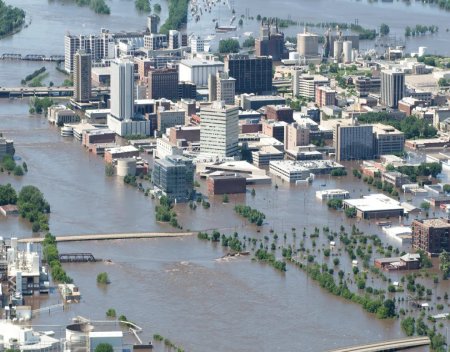
Does How My Home Was Built Affect My Flood Insurance Rates?
When people think about protecting their home, flood insurance isn't always at the top of the list. But flooding is one of the most common and costly disasters in North America. While many homeowners understand the basics, there are several surprising facts about flood insurance that could affect how you protect your property. Here are some things you might not know—but definitely should.
Many assume flood insurance is only for people living near rivers or coastal zones. In reality, over 20% of all flood insurance claims come from properties in low- to moderate-risk areas, according to FEMA. Just because you're not in a designated flood zone doesn’t mean you’re safe. Heavy rain, blocked drainage, or melting snow can cause flooding anywhere.
Standard homeowners insurance does not cover flood damage. That means if your basement fills with water after a heavy rainstorm, or your first floor is submerged from a rising creek, you’re likely on your own financially—unless you have a separate flood insurance policy.
One of the biggest surprises for new policyholders is the 30-day waiting period before most flood insurance policies take effect. That means you can’t buy coverage a few days before a big storm and expect to be protected. You need to plan ahead.
Even if you have flood insurance, don’t assume your entire basement is covered. NFIP policies often limit coverage for finished basements, flooring, wall coverings, and personal belongings stored below ground level. Sump pumps and furnaces may be covered, but luxury items like carpeting or home theaters likely are not.
If you're getting your flood insurance through the National Flood Insurance Program (NFIP), there are coverage limits: $250,000 for the building and $100,000 for contents. If your home or possessions exceed that value, you’ll need to purchase excess flood insurance through a private insurer to be fully protected.
“Flooding” includes more than just a river or ocean overflowing. It also refers to heavy rain that causes surface water to pool, storm surges, snowmelt, or broken levees and dams. As long as the flooding affects at least two properties or two acres, it generally qualifies for coverage.
FEMA regularly updates its flood maps, which can change your flood zone designation—and your premium. You could be moved into a higher-risk zone and be required to buy insurance for the first time, or you might be reclassified into a lower-risk zone and qualify for reduced rates. Always check your flood zone status and reevaluate your policy regularly.
Flood insurance isn’t just for homeowners. If you rent, you can still get contents-only coverage to protect your personal belongings, including electronics, furniture, and clothing. The landlord’s insurance doesn’t cover your possessions in the event of a flood.
Many people think they can’t get flood insurance after their home has already flooded. Not true. In most cases, you can still purchase flood insurance—although your premium may be higher if you have a history of claims. It’s best to speak with a licensed agent to understand your options.
Flood insurance can be more complicated than it first appears. From hidden coverage limits to surprising risk areas, understanding the finer details could make a huge difference when disaster strikes. Whether you own or rent, it’s worth taking a closer look at your flood risk and what kind of coverage you might need.
Don’t wait until it’s too late—flood insurance is one of those things you’ll wish you had, if the worst ever happens.
I have known Tim for many years and he is a man with great integrity, work ethic and one of the nicest persons I know. Over the years Tim has provided insurance counseling and advice to our company, for myself personally, as well as to our clients. Recently Tim, took time to analyze our flood insurance policy and he was able to make some excellent recommendations. Our flood insurance costs are now less and we have much better coverage. I recommend Tim to anyone without hesitation or reservation.
We contacted Mr. Holt for an estimate via email over the weekend prior to a closing on a property, hoping for a response on the following Monday to take with us with confidence in being insured at the settlement table on a Tuesday. He exceeded our expectations not once but in readily responding to the initial request and then to follow-up questions all during the weekend frenzy that occurs before closing. "Impressive and responsive customer service," for sure!
I have no problem giving you an A1 reference for taking care of the flood policies for me and Diane. I appreciate you working with the mortgage company: the surveyor and our previous agent. The result was a 75% reduction in our flood insurance premiums!